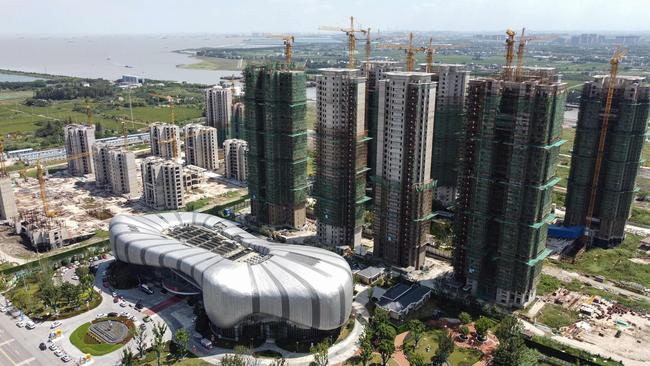China’s Evergrande debt crisis: Sizing up a big mess
Chinese property giant Evergrande Group missed a scheduled interest payment to bondholders last month, raising the prospect that October could bring one of the largest defaults in years.

China Evergrande Group last month missed a scheduled interest payment to overseas bondholders, raising the prospect that October could bring one of the largest defaults in years.
Investors have been grappling with unknowns including what the Chinese government might do in response. Beijing has signalled it is preparing to cushion the blow to national interests. That could include potential aid to Chinese investors, banks, Evergrande’s suppliers and home buyers who committed financially to homes that have yet to be completed.
Evergrande and the real-estate sector in general are important cogs in China’s economy, and the overheated housing market was already showing signs of a downturn. At the same time, few analysts expect good news for the foreign owners of the company’s dollar bonds.
Evergrande last month said it had hired financial advisers and has said that default was a risk.
China’s housing bubble Analysts have generally indicated an Evergrande default wouldn’t spur a crisis of confidence like the one that followed the Lehman Brothers collapse. But Evergrande is the largest property developer in a Chinese real-estate bubble that has been expanding for years. Investment over the past decade in China’s residential-property market has dwarfed the US housing bubble of the 2000s, at least in terms of its share of domestic economic output.
The scale of Evergrande’s ambitions was staggering. As of the end of last year, the property developer had more than 700 projects under construction, covering 132 million square meters of total floor area. For comparison, the total floor area of the Empire State Building is about 257,000 square meters.
Part of the uncertainty around Evergrande’s struggles stems from its sales practices. Evergrande sold many homes before they were completed. As of the middle of this year, the company had pre-sold roughly 1.4 million individual properties worth about $US200bn ($A412bn) combined.
Another sign of the scale of China’s housing boom: home price-to-income ratios in China’s big cities make New York, London and Paris look cheap.
Bills to pay At the core of this crisis is Evergrande’s mountain of liabilities, which stood at roughly $US304bn as of the middle of this year. That included $US89bn in debt outstanding, 42 per cent of which was due in less than a year.
The company’s borrowings include nearly $US20bn in dollar-denominated bonds. On September 23, it failed to pay $US83.5m in interest on that offshore debt, leaving foreign investors to weigh their options for recourse. Evergrande has a 30-day grace period before its non-payment constitutes a default on its bonds.
Evergrande said Wednesday it struck a deal with a Chinese state-owned enterprise to sell most of its stake in a commercial bank for $US1.5bn, a sign that the country’s authorities are trying to help the property developer manage its debt crisis.
The Wall Street Journal



To join the conversation, please log in. Don't have an account? Register
Join the conversation, you are commenting as Logout